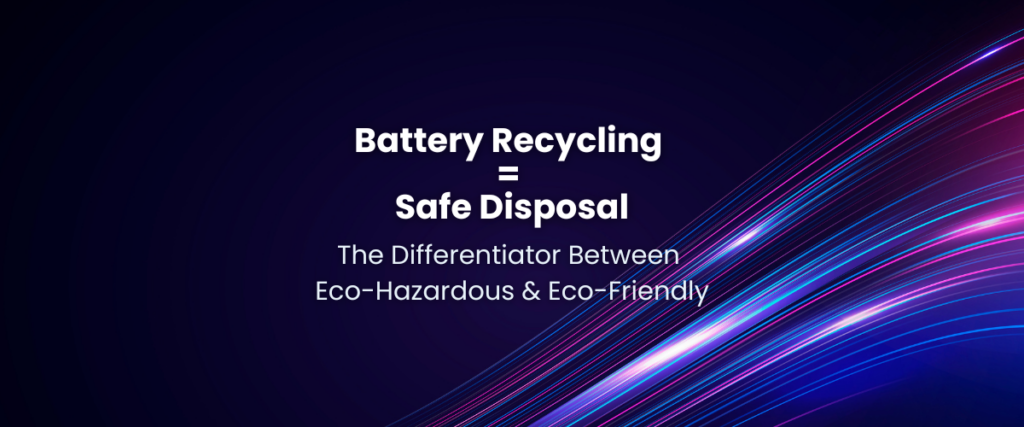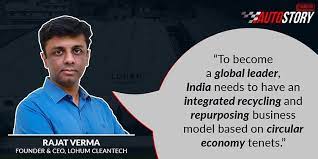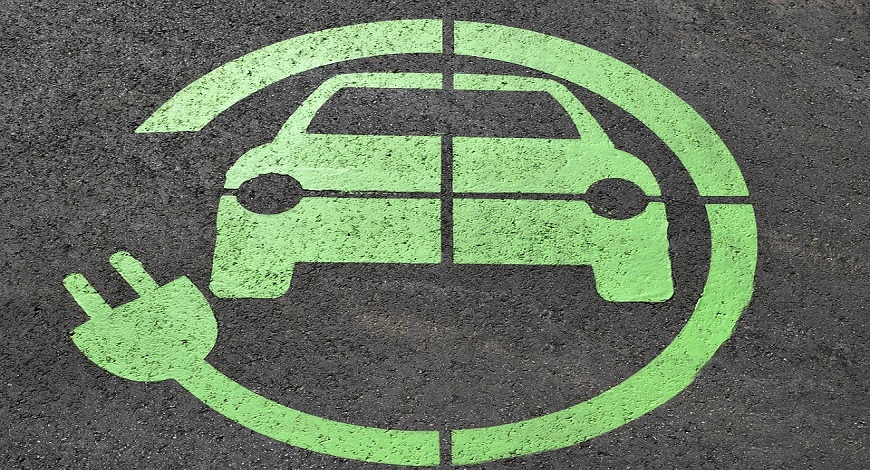
The EV battery disposal dilemma refers to the challenge of managing the increasing amount of battery waste generated by the growing adoption of EVs. This waste poses a threat to the environment and human health due to the toxic and flammable materials present in the batteries and thus battery waste is unsustainable if left unmanaged and unrecycled. One of the pivotal technology pioneers that is addressing this dilemma is LOHUM, a company that recycles and repurposes lithium-ion battery waste from electric vehicles (EVs), energy storage systems, and more.
LOHUM believes that India needs an integrated recycling and repurposing battery business model to reduce the environmental impact and cost barriers of battery power, and is key to the ecosystem pioneering an end-to-end battery lifecycle management model. LOHUM’s vision is to create a circular economy for batteries, where the end-of-life batteries are either reused for other applications or recycled to recover the valuable materials, virtually ad infinitum.
Sustainability is the global goal, demanding the decline of pollution, conservation of energy and resources, equal opportunities, supportive economies, and consistent innovation of new technologies. The energy transition ecosystem and auxiliary industries undeniably hold a key role in industrial decarbonization and net zero efforts. With sensitive scrutiny on environmentally conscious practices from the onset of the transition, all stakeholders are rapidly securing extended producer responsibility compliance, synchronous with Government and International policy frameworks.
Previously, we covered how battery reuse makes energy circular as the ideal entryway of used batteries into the closed-loop secondary materials ecosystem, and battery recycling is the next step. After EV batteries become waste, and the battery’s cells are ineligible for reuse or repurposing, the waste cells enter the recycling process.
Disposal of EV Batteries is A Preventable Crisis
A preventable crisis that poses various hazards to both the environment and economy, encompassing:
The chemical composition of Lithium, nickel, and cobalt in Lithium-ion batteries poses a threat to soil, water, and air when not handled with care, releasing harmful elements into the environment. Our commitment to a circular economy and environmental conservation not only reduces the demand for material extraction but also mitigates the release of hazardous pollutants.
Electric vehicle batteries contain metals like cobalt, nickel, and lithium, which are by no means infinite resources. Neglecting to recycle these metals can lead to their depletion, increasing the complexity and cost of lithium-ion battery production.
The improper disposal of EV batteries has not only caused economic disruption but also resulted in tragic incidents, including explosions and fires. The recycling process creates employment opportunities across various sectors, from logistics to manufacturing, while also reducing the overall cost of EV batteries, making sustainable energy more accessible.
Battery recycling is more than just an environmental endeavor. It contributes to building a sustainable community, supporting renewable energy adoption, reducing reliance on imports, and improving working conditions for miners, aligning with social responsibility and human rights principles.
The recycling process involves the extraction and recovery of critical elements. The elements recovered are in the form of metal salts, similar to those obtained through traditional mining. This means that these recycled salts can be recombined to create new battery components for the production of pristine Lithium-ion batteries.
At LOHUM, we extend gratitude to responsible partners, stakeholders, and consumers who participate in the process of Lithium-ion battery recycling, contributing to the regeneration of critical Energy Transition materials. Battery asset owners, such as EV OEMs, Charging Infra companies, Fleet Operators, Battery Underwriters, and more, hand us their end-of-life batteries for recycling. By supporting battery recycling, each individual from the consumer to the manufacturer makes a direct contribution to resource conservation and a reduction in the carbon footprint associated with the EV battery industry.
Battery recycling reduces the demand for raw lithium extraction, which is mined via manual and machine-intensive processes and higher CO2e emissions but also results in eco-friendly, zero-waste raw material recovery, with all by-products either utilized or sold.
Battery recycling at LOHUM ensures that the quality of the recycled materials is comparable to or superior to that of the virgin primary materials. LOHUM’s technology, NEETM™, yields high-quality raw materials from end-of-life batteries with zero waste and lower carbon emissions than mining. These raw materials can be used to create new battery components that meet or surpass the performance and safety standards of the EV industry.
Battery recycling creates value for both the battery asset owners and the recyclers. The battery asset owners can monetize their end-of-life batteries by selling them to recyclers, who can recover valuable metals and materials from them. The recyclers can then sell these metals and materials to the battery manufacturers, who can use them to produce new batteries at a lower cost.
These recycled batteries find new life in Second-life Battery Energy Storage Systems (BESS). They serve a multitude of applications, including powering EV charging stations, meeting residential and commercial energy storage and stabilization needs, providing grid support, serving as emergency backup systems, and storing renewable energy.
Compared to traditional mining, recycling with NEETM™ consumes 500x less water per ton of battery raw materials produced.
Battery recycling fosters a closed-loop circular economy, where highly pure recycled materials re-enter the supply chain to create pristine EV batteries. This, in turn, leads to a more affordable lithium-ion battery market, facilitating the broader transition to electric vehicles and sustainable energy systems. By responsibly recycling batteries, we prevent the bioaccumulation and biomagnification of harmful substances in the food chain, prevent hazardous fires or explosions from damaged waste batteries, and preserve natural ecosystems.
As we journey towards a sustainable future, the choices we make have the power to transform the energy landscape and ensure the preservation of our planet for generations to come. The significance of responsible battery recycling cannot be overstated in our quest for a cleaner world with reduced carbon emissions.
Embracing battery recycling not only reduces our carbon footprint but actively contributes to the creation of a circular economy, where resources are conserved, environmental harm is minimized, and the promise of affordable, sustainable energy becomes a reality. Together, we turn waste into value, safeguard our planet, and accelerate the global shift toward a cleaner, greener future.
Stay tuned to the LOHUM blog and our LinkedIn page for more content on sustainability, battery energy, the energy transition, circular economy, battery recycling, and repurposing.

Forbes India
Rajat Verma already recovers raw materials from used cells at his venture, Lohum Cleantech. He wants to close the loop by making cells in India as well.

YOURSTORY
In an interaction with AutoStory, Rajat Verma, Founder and CEO of Lohum Cleantech, speaks about building his company, and about battery manufacturing and repurposing as an industry.

Business World Disrupt
Recognized as ‘The Most Innovative Company of the year 2022’ by The Confederation of Indian Industry (CII), Lohum is a producer of sustainable Li-ion battery raw materials
1800 572 8822
Email : enquiry@lohum.com
G98, Site, 5, Kasna, Block A, Surajpur Site V, Greater Noida, Uttar Pradesh 201306
Lohum Cleantech Private Limited, Plot No. D-7 & 8, Site 5th, Kasna Industrial Area, Greater Noida, Gautam Budh Nagar, Uttar Pradesh – 201308
Lohum Cleantech Private Limited, Plot No. O-17, Site 5th, Kasna Industrial Area, Greater Noida, Gautam Budh Nagar, Uttar Pradesh – 201308